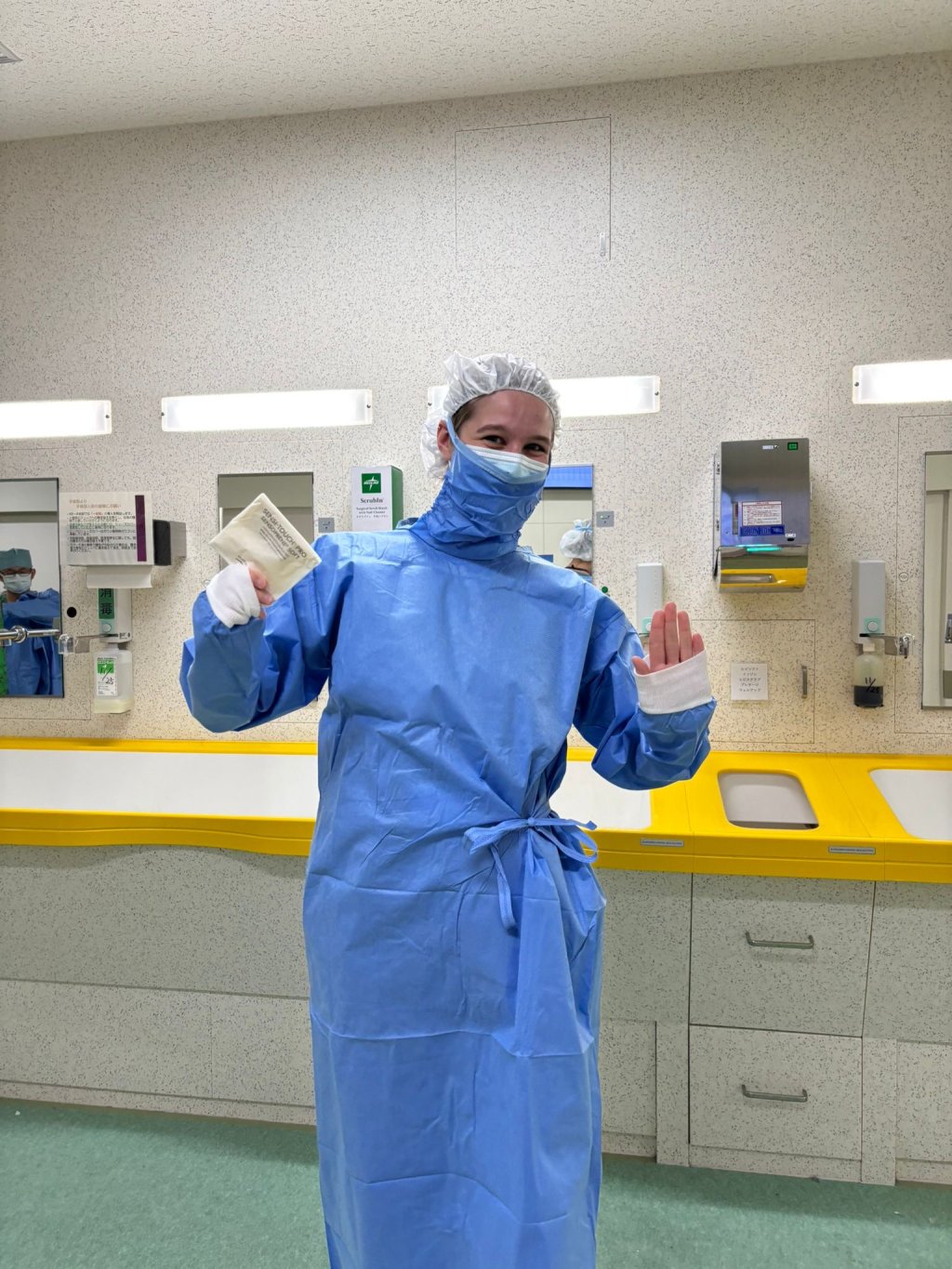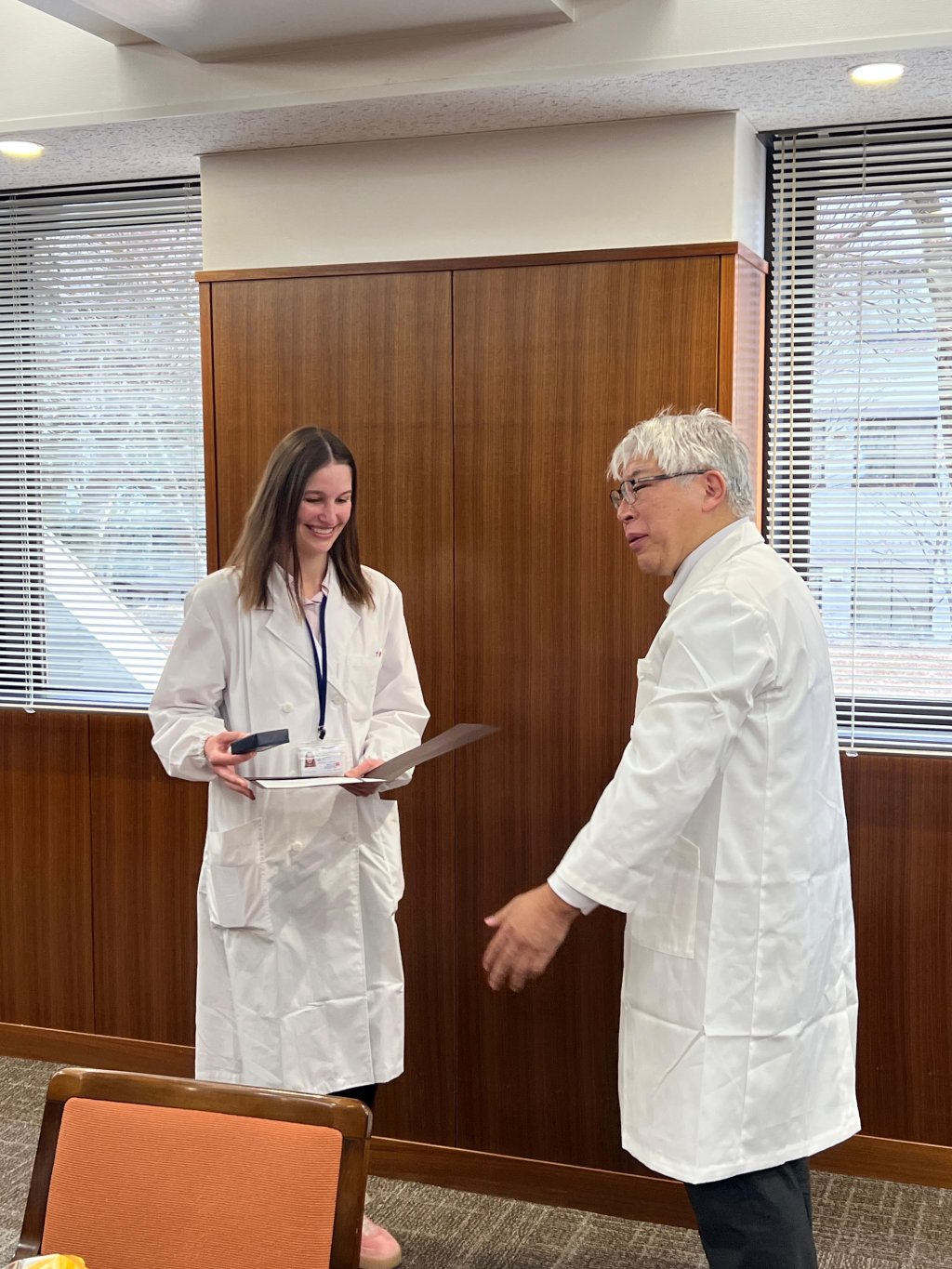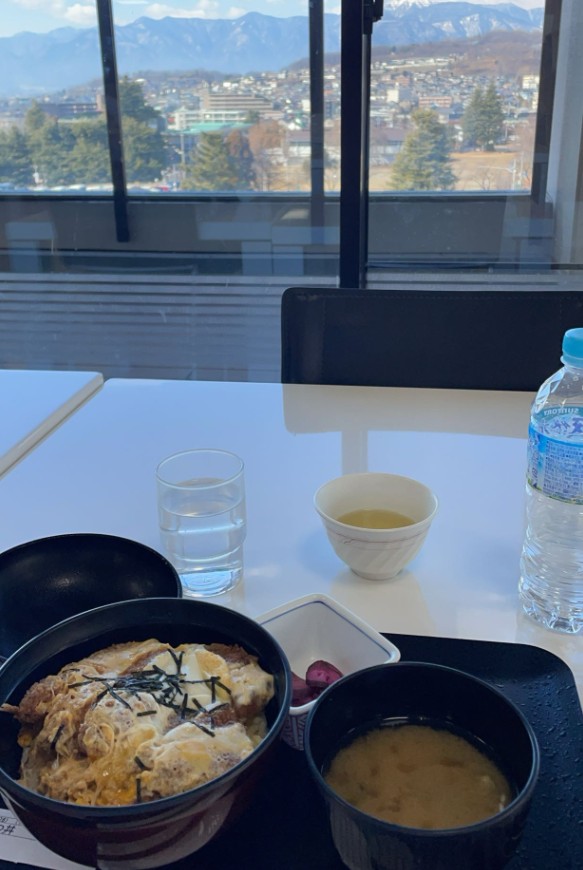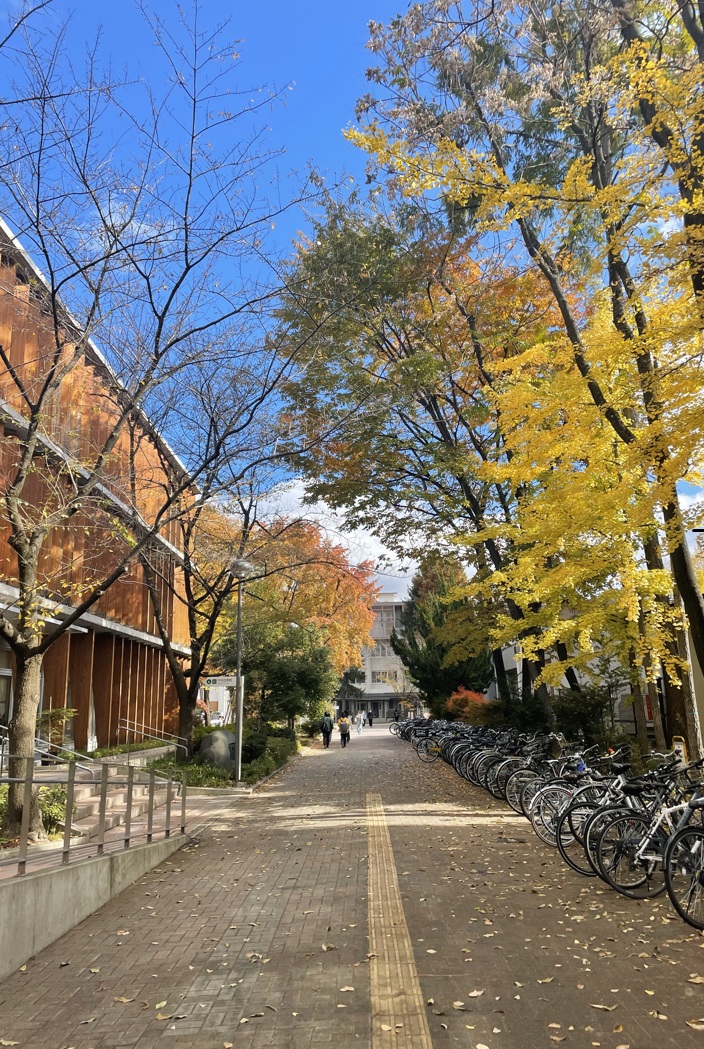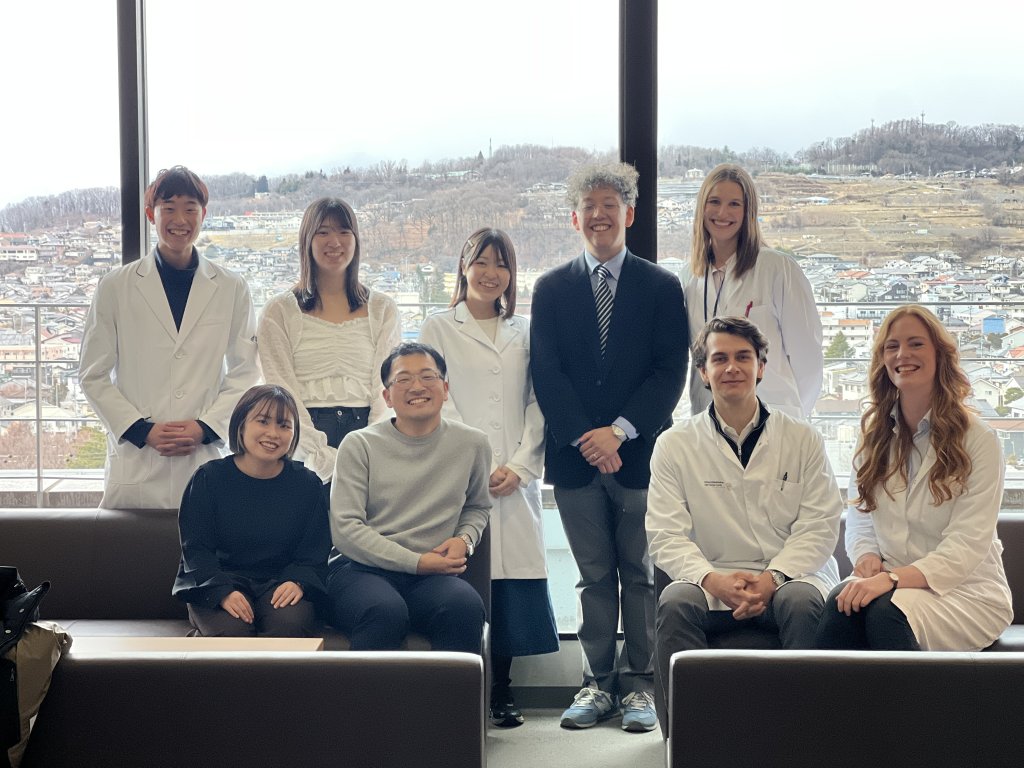2024 Student from TU Dresden:Clinical training at the Dept of Surgery
Name: Aileen Brockel
Home Institution/ Country: TU Dresden/Germany
Year of university: 6th
Designated department at Shinshu University: Department of Surgery (Gastroenterological, Hepato-Biliary-Pancreatic, Transplantation and Pediatric)
Training Period: from Nov 18, 2024 to Mar 7, 2025
Training: Clinical training
1. What made you come train at Shinshu University School of Medicine and how did you find the School through your stay?
2 years ago, I had the opportunity to guide two medical students from Shinshu University in Dresden. They were great company and sparked my interest in visiting their home university. Additionally, I had lived in Japan for almost a year as a high school student ten years ago, so I was eager to use my Japanese language skills again and revisit the country that once felt like home.
Shinshu University School of Medicine did not disappoint. From my very first visit to the campus, I was captivated by its beauty- the vibrant autumn leaves at the main entrance fraimed the walkway in front of the library, creating a stunning sight. I was pleasantly surprised by the welcoming and lively atmosphere of the campus. Moreover, I thoroughly enjoyed my daily visits to the student cafeteria, where having ramen for lunch became a highlight of my routine. The school provided the perfect environment to support hardworking students, making my experience both enriching and enjoyable.
2. Please describe your training at host department/lab.
My training at the Department of Surgery at Shinshu University was both highly rewarding and enjoyable. I had the opportunity to attend several conferences, where the doctors kindly translated key discussions for me and were always open to any questions I had. During ward rounds, I met many patients, learning about their cases and ongoing treatments. Naturally, my training involved observing numerous surgical procedures, and I was even able to assist in some of them. As Shinshu University Hospital is a major medical center in Nagano Prefecture, I had the chance to witness unique and complex operations, including a living donor liver transplantation and many more.
Beyond clinical training, I also connected with many Japanese medical students who showed great interest in me and my home country. We had engaging conversations and often went to lunch together, allowing me to gain insights into their experiences as medical students at Shinshu University. I was truly grateful for their openness and for the welcoming atmosphere created by everyone at the hospital, which made me feel comfortable throughout my stay.
3. Please list what you have gained from your experiences through the training at Shinshu University and the stay in Matsumoto, Japan.
During my stay at Shinshu University, I gained extensive knowledge of surgical techniques, patient management, and post-operative care. One of the most valuable aspects of my experience was the intercultural exchange. Navigating language barriers, cultural differences, and varying work ethics challenged me to adapt and improve my communication skills. Additionally, this experience provided me with a broader perspective on global healthcare systems, allowing me to critically reflect on different approaches to medical practice.
4. How do you think you can apply those experiences to your future career?
The experiences I gained at Shinshu University will be highly valuable for my future career in several ways. First, the technical surgical skills and exposure to different approaches to patient management will enable me to incorporate new techniques and enhance the quality of care I provide. Additionally, adapting to different healthcare settings has strengthened my ability to work in diverse medical environments- an essential skill in an increasingly globalized field.
5. Advice to those who are interested in studying at Shinshu University
Seize the opportunity to invest in your future self. In today's world, intercultural knowledge is invaluable--not only for patient care but also for medical research. The best learning happens outside of our comfort zones, from people with completely different perspectives. And if you don't speak Japanese, don't worry--that's neither a requirement nor an excuse. Your colleagues at Shinshu University are always there to support you.


